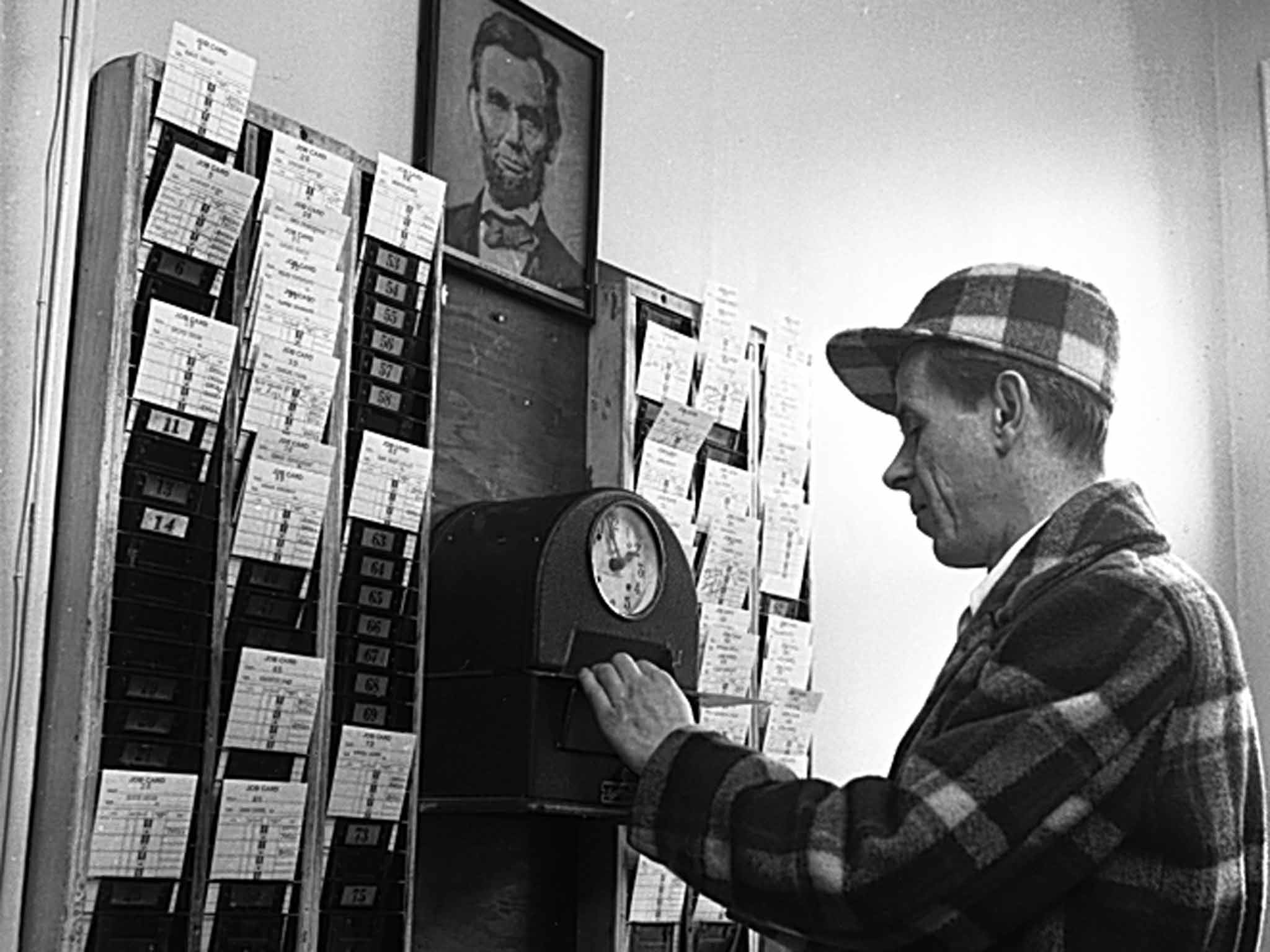OccupEye sensors: A sinister exercise in Big Brother-style management or a 21st-century way to monitor workers' needs?
Sam Kitchener explores the implications of how technology helps employers keep tabs on employees

As a freelancer, I'm only asked to account for the time I spend at a desk to myself, or sometimes to my wife when she asks how I've managed to watch so many episodes of Inspector Morse on a day I'm supposed to be working. Sometimes you long for the routine of a shared workplace, and when I file copy from my lonely eyrie, I occasionally entertain wistful thoughts of “neurotic men in shirt sleeves and eye-shades” as Evelyn Waugh put it in Scoop, rushing “from telephone to tape machines, insulting and betraying one another in surroundings of unredeemed squalor”.
Fleet Street isn't what it was, of course – it is, for instance, no longer on Fleet Street. And the rushing around, in particular, seemed threatened this week with reports that Daily Telegraph journalists had arrived at work to find motion sensors attached to their desks. BuzzFeed News originally reported that these “OccupEye” sensors were installed “to monitor whether journalists are at their desks”. The implication being that the company wanted to identify any possible slackers.
The Telegraph quickly sent out a memo attempting to allay these fears. The purpose of the monitors was simply to help reduce energy costs by enabling the company to identify “times of low useage”. Staff remained sceptical. The OccupEye website talks about the demands that “the global economic climate” makes on property managers “to find savings through increased efficiency”. “Increased efficiencies” is often corporate-speak for “redundancies”, but that doesn't seem to be what OccupEye is talking about here. It advocates “space reduction rather than staff reduction”. In other words: hot desking.
It was potential changes to workplace culture that the National Union of Journalists picked up on, and which led its assistant general secretary, Seamus Dooley, to attack what he saw as “Big Brother-style surveillance” yesterday, pointing out that there are strict legal safeguards regarding workers' privacy. To its credit, The Telegraph removed the devices just four hours after the story broke, so it does seem to have been a genuine, if mishandled, attempt at identifying potential savings.
That's not always the case. Call-centre staff have for years put up with timers recording how long they spend away from their computers (and had their pay docked accordingly). And new technology increases the scope for this sort of monitoring, gradually eroding the distinction between work and a life outside it. How so? Well, imagine if your employer told you to wear a Fitbit, to track levels of exercise, diet and sleeping pattern (BP America recently gave Fitbits to its workers as part of a “Stay Well” campaign). Is the health of workers any of their employer's business? Well, if they're paying for BUPA, perhaps it is.
Still, these efficiencies can be self-defeating. It is no surprise that one former call-centre worker tells me that it was a “'horrible environment” in which to work, and that the numbers of calls they made were likely offset by high staff turnover. The senior HR professionals I have spoken to are equally sceptical about using these techniques in anything other than obviously metric-driven jobs such as sales. It doesn't matter how long a worker spends at their desk if they're hating every minute of it.
Besides, there are ways round any system. In the old days, newspaper reporters used to leave their jackets on the backs of their chairs to indicate that they were elsewhere in the office, beavering away. (In fact, they were often in the pub, and wearing their spare jacket, kept at work for that purpose.) Telegraph journalists, apparently, just took the batteries out of their Occ-upEye monitors. But they could always consider becoming freelancers. The office parties are crap, but I have managed to watch all 33 episodes of Inspector Morse in the past two months.
Subscribe to Independent Premium to bookmark this article
Want to bookmark your favourite articles and stories to read or reference later? Start your Independent Premium subscription today.

Join our commenting forum
Join thought-provoking conversations, follow other Independent readers and see their replies